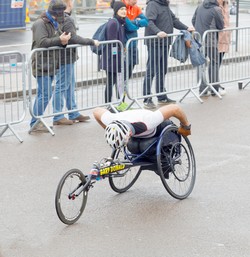New media and disabled sport
Major international sporting events for disabled athletes rotate among host cities. Yet, little is known about the lasting impact of such events on the host communities. The EU-funded LONTOR(opens in new window) (An investigation of the impact of multi-platform media coverage of the 2012 London Paralympic Games and the 2015 Toronto Parapan American Games upon perceptions of disability) project investigated attitudes about disability, and use of media technology, concerning large sporting events. Researchers surveyed the public for several months in the East London and Greater Toronto Area. Results reveal a complexity and tension within attitudes surrounding identity, media, disability and inclusion. The study found that multimedia usage is both extensive and constantly changing. Results hold implications for the ways fans follow sport. Twitter had been an important source of information, yet its usage is declining. Fans are increasingly following sport on smartphones in preference to other devices: 35 % for London and 38 % for Toronto. Although conventional media such as radio and television remained important to some respondents, new media are mounting a strong challenge. Most participants had limited knowledge of the sporting events. More than 26 % of London respondents had not previously heard of the Paralympic Games. Also, nearly half of Toronto respondents had not heard of the Parapan American Games. In both cases, over 80 % of respondents did not know the purpose of classification in disability sport. After the conclusion of such events, few could remember athletes’ names or achievements. Athletes were also not followed after the games. The situation is similar to that of less-popular Olympic events such as fencing and discus. Britain’s history of being a founder member of the Paralympics Games gave British athletes a higher rate of recognition than their Canadian counterparts. Between 31 and 55 % of British respondents recognised British athletes, whereas just 0-8 % of Canadians could do the same. The project’s results will be useful to various governing bodies of disabled sport. Results highlight the differing priorities of such bodies compared to the general public’s interest in disabled sport.



